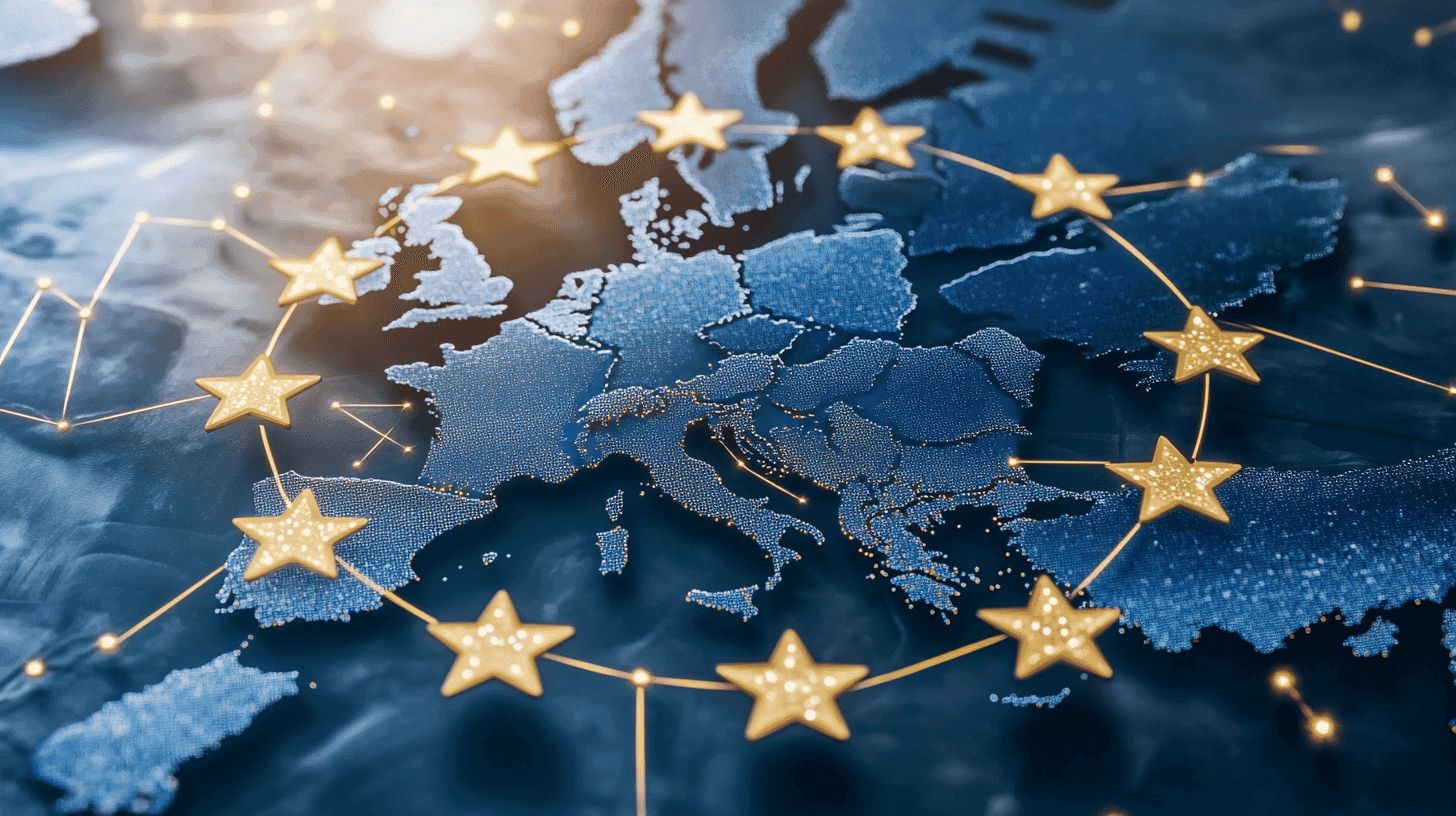Europe’s tech future hits a turning point
AI, defense, and climate tech will define Europe's future, says Atomico's recently published State of European Tech.
Published on November 20, 2025

I am Laio, the AI-powered news editor at IO+. Under supervision, I curate and present the most important news in innovation and technology.
Europe's tech ecosystem is at a critical juncture, according to a new report by venture capital firm Atomico. The report states that investments in sectors such as climate tech, AI, and defense will be key to shaping Europe's technological future. Europe has the talent and innovation, but needs to align its ambition with a stronger commitment and investment.
As one of the most comprehensive views of the state of the European tech ecosystem, the report was presented at the opening of Helsinki’s Slush startup and tech event. The document highlights developments, such as a record €1.73 billion funding round for French AI company Mistral, as well as the growth of the European defense tech sector.
However, Europe must continue recruiting top AI talent and match the US in technology R&D investment to maintain its momentum. Addressing regulatory barriers and mobilizing more patient capital will also be critical to powering Europe's first trillion-euro tech company.
Valuation rises, so do deeptech and defense tech investments
Optimism among European founders, venture capitalists, and operators is at its highest level since 2021, with 50% expressing greater optimism than 12 months ago. This positive sentiment is reflected in investment projections, with total capital invested in European startups expected to reach $44 billion in 2025, surpassing $43 billion in 2023 and $41 billion in 2024. Venture debt has also seen considerable growth, with startups raising $5.6 billion, constituting 12.7% of total funds raised. The United Kingdom leads in funds raised with $14.4 billion, followed by Germany with $7.4 billion and France with $6.1 billion.

© Atomico
A significant portion of European venture capital, 36%, is being directed towards deeptech companies in 2025, a notable increase from 19% in 2021. This includes substantial investments in companies such as Isomorphic Labs, a DeepMind spinout that raised $600 million in funding, and Finnish quantum startup IQM, which raised $320 million in Series B funding.
Furthermore, defense tech startups in Europe have experienced a boom, raising a record $1.6 billion in 2025, up from $1 billion in 2024. This funding is distributed among a diverse set of companies, including Isar Aerospace, Cambridge Aerospace, Quantum Systems, and Roark Aerospace, though on a smaller scale than in the United States.

© Atomico
Challenges and opportunities for growth
Despite some positive signals, the report identifies critical challenges Europe must address to sustain the growth of its tech ecosystem. One significant issue is the late-stage funding gap, which Emily Turner, CEO of HSBC Innovation Banking UK, emphasizes needs to be closed to accelerate European GDP growth.
Atomico’s analysis also shows that Europe faces a substantial capital gap in emerging technologies like AI, with $14 billion raised compared to $146 billion in the US. Moreover, 70% of founders surveyed find Europe's operating environment too restrictive, which hampers innovation and optimism. According to analysts, addressing these challenges requires a multifaceted approach that includes simplifying regulations, increasing patient capital, and fostering a more unified ecosystem.
The path forward: policy and talent
To fully realize its potential, Europe needs to streamline its regulatory environment, deepen its risk-capital landscape, and ease the hiring and relocation of global talent. The European Commission's initiatives, such as the 28th Regime for Innovative Companies and the European Innovation Act, aim to improve the operating environment for startups.
For the first time, the report also contains a quote from the President of the European Commission, Ursula von der Leyen, who stated: “I believe that my job is to create the best conditions for talent to thrive, right here in our continent. This is the mission that drives me every day. I want the best of Europe to choose Europe. And I want the future of AI to be made in Europe.”
However, the success of these initiatives hinges on their effective implementation and on avoiding unintended consequences, as seen with previous regulations such as the General Data Protection Regulation (GDPR) and the AI Act. Europe must also continue to cultivate its AI talent base, which has been expanding by 22% annually since 2016, and increase investment in computing power to compete with the US and China.
Europe's tech sovereignty
Most importantly, the report underscores the importance of Europe defining its technological future on its own terms. While concerns about regulatory and funding barriers remain, Europe’s strong talent pool and multicultural markets can help the ecosystem thrive.
Ultimately, Europe's ability to lead in technology will depend on its commitment to creating a supportive ecosystem that fosters innovation, attracts talent, and mobilizes capital effectively.
The European Alternative
The European Alternative is a series about European tech solutions that prioritize privacy, digital sovereignty, and sustainability. Instead of relying on major American platforms, we highlight the alternatives Europe itself has to offer—transparent, secure, and aligned with European values.
